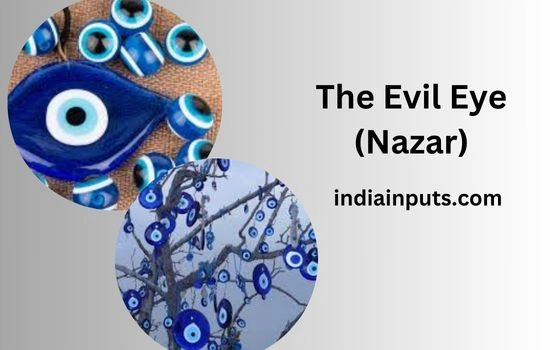India, a land rich in cultural diversity and traditions, is also a repository of numerous superstitions. Rooted in centuries of folklore, religion, and societal norms, these beliefs often reflect the coexistence of ancient wisdom and myths. While some superstitions have a logical origin, others are purely symbolic. This article delves into the top 10 most common superstitions in India, their origins, and their impact on daily life.
1. The Black Cat Crossing Your Path

One of the most widespread superstitions in India is that a black cat crossing your path is a bad omen. It is believed to bring misfortune or disrupt plans for the day.
Origins:
- The belief may have roots in ancient symbolism where cats, especially black ones, were associated with witchcraft or bad luck.
- Another explanation is the fear of cats’ nocturnal behavior, which ancient societies found mysterious.
Impact:
Many people avoid the path after spotting a black cat, often delaying their travel or taking a different route.
2. Hanging Lemon and Green Chilies

You’ll often see lemons and green chilies hanging at the entrance of homes, shops, or vehicles. This is believed to ward off the evil eye and bring prosperity.
Origins:
- The practice originates from traditional Indian households, where it was thought that the sharp smell of lemons and chilies repelled negative energies.
- Some believe it deters Alakshmi, the goddess of misfortune.
Impact:
This superstition has led to a thriving market for lemons and chilies, especially during festivals and auspicious events.
3. Twitching of the Eye

The twitching of the left or right eye is considered a sign of good or bad luck, depending on the gender of the individual.
Origins:
- This belief may stem from ancient astrological interpretations where bodily sensations were linked to celestial movements.
- In some regions, left-eye twitching is deemed auspicious for men and inauspicious for women, and vice versa.
Impact:
Many people adjust their decisions or plans based on this superstition.
4. Sweeping After Sunset

Sweeping the floor after sunset is believed to invite bad luck or poverty into the household.
Origins:
- This belief likely originated in times when there was no electricity, and valuable items like jewelry or coins could be accidentally swept away in the dark.
- Symbolically, it represents not discarding wealth or opportunities.
Impact:
Even in modern times, many households refrain from cleaning their homes at night.
5. Breaking Mirrors Brings 7 Years of Bad Luck

Breaking a mirror is considered extremely unlucky in India, believed to bring seven years of misfortune.
Origins:
- This belief likely comes from ancient times when mirrors were rare and expensive, and breaking one signified carelessness or financial loss.
- Symbolically, mirrors were thought to capture the soul, and breaking one was considered a spiritual disturbance.
Impact:
People handle mirrors with great care and often perform rituals to nullify the effects if one breaks.
6. The Evil Eye (Nazar)

The concept of the evil eye, or “nazar,” is deeply ingrained in Indian culture. It is believed that a jealous or envious glance can bring harm or bad luck.
Origins:
- This belief is common across many cultures and dates back to ancient times when people sought explanations for sudden misfortunes.
- Protective measures like black dots on children’s foreheads or charms are used to ward off the evil eye.
Impact:
This superstition influences various rituals, from adorning newborns to safeguarding possessions.
7. Cutting Nails or Hair on Certain Days

In many Indian households, cutting nails or hair on Tuesdays, Saturdays, or after sunset is considered inauspicious.
Origins:
- This superstition likely stems from traditional weekly routines and the belief that such activities may disturb the spiritual balance of the household.
- Cutting nails and hair after dark was avoided to prevent accidents when there was no electricity.
Impact:
People follow these practices even today, scheduling grooming activities on specific days.
8. Yawning Without Covering the Mouth

Yawning without covering your mouth is believed to invite evil spirits into the body.
Origins:
- This belief may have originated from hygiene practices, as open yawning can spread germs.
- Symbolically, the open mouth was thought to make the soul vulnerable to negative energies.
Impact:
The superstition reinforces the habit of covering one’s mouth while yawning, which aligns with modern hygiene practices.
9. Spilling Salt

Spilling salt is thought to bring bad luck, often requiring the person to throw a pinch of it over their left shoulder to negate the effect.
Origins:
- Salt was a valuable commodity in ancient times, and spilling it symbolized waste and carelessness.
- Throwing salt over the shoulder is believed to blind the devil or ward off evil spirits.
Impact:
This belief is prevalent in many cultures, including India, and influences dining and kitchen etiquette.
10. Crows as Messengers

The sight or call of a crow is considered a message from ancestors, often predicting visitors or significant events.
Origins:
- In Hindu mythology, crows are associated with Pitru Paksha, a ritual for honoring ancestors.
- Crows are believed to be messengers of Yama, the god of death.
Impact:
This superstition is deeply respected during ancestral rituals, and feeding crows is seen as an act of reverence.
Why Do Superstitions Persist?
- Cultural Heritage: Many superstitions are passed down through generations as part of India’s rich traditions.
- Fear of the Unknown: Superstitions offer explanations for uncertainties and misfortunes.
- Social Reinforcement: Community practices and beliefs reinforce the continuation of these superstitions.
Balancing Beliefs and Rationality
While some superstitions have historical or symbolic roots, others may lack scientific basis. It’s essential to approach them with a balanced perspective:
- Respect Tradition: Acknowledge the cultural significance of superstitions without blindly following them.
- Promote Awareness: Educate people about the origins and rationality behind such beliefs.
- Focus on Practicality: Adopt practices that are meaningful and beneficial, discarding harmful or baseless ones.
Conclusion
Superstitions are an integral part of India’s cultural fabric, reflecting its historical, spiritual, and social diversity. While some are harmless and even promote positive habits, others may hinder progress or propagate fear. Understanding the origins and significance of these beliefs allows us to appreciate their role in shaping Indian society while fostering a rational approach to living in harmony with tradition and modernity.

